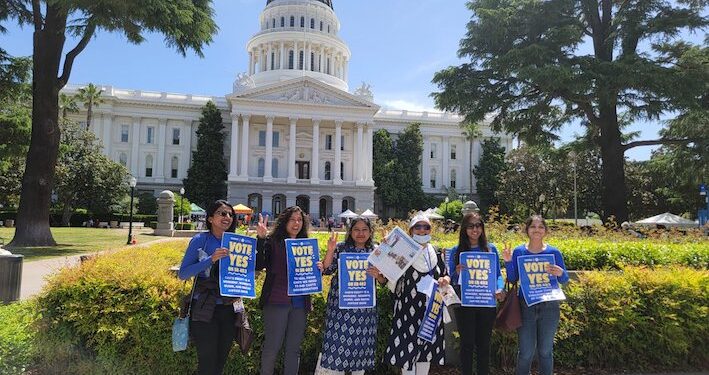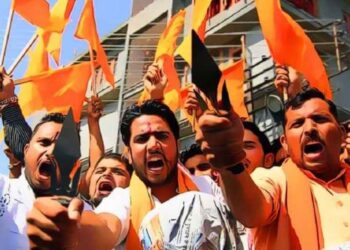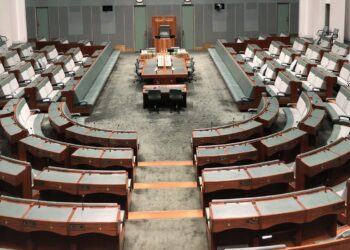A US Federal Court has issued a landmark ruling upholding the California Civil Rights Department’s (CRD) constitutional authority to pursue action against caste-based discrimination—delivering a decisive victory to caste-oppressed communities and civil rights groups.
The ruling by the United States District Court for the Eastern District of California, issued on 18 July, dismisses a lawsuit by the Hindu American Foundation (HAF), which had alleged that CRD’s anti-caste enforcement infringed the religious rights of all Hindu Americans.
The court found HAF’s arguments “entirely unpersuasive” and denied their request to amend the complaint, effectively ending their legal challenge. The court further rejected HAF’s claim that it represented all Hindu Americans, citing a lack of evidence of actual engagement or standing.
The decision reaffirms the state of California’s legal mandate to protect individuals from caste-based discrimination—a system of graded inequality rooted in South Asian social hierarchies, particularly those historically associated with Hinduism.
Civil rights enforcement validated
The CRD has been pursuing caste-related enforcement actions under the California Fair Employment and Housing Act (FEHA), most notably in a high-profile case against Cisco Systems. In its ruling, the court found that the CRD’s litigation constituted legitimate state action—countering HAF’s portrayal of it as unconstitutional or discriminatory against Hindus.
In its complaint, HAF accused the CRD of defaming Hinduism by conflating caste with religious doctrine. At the same time, it argued that CRD’s policies infringed religious freedom—claims the court found contradictory and without merit.
A major win for caste-oppressed communities
“This is a historic win,” said Karthikeyan Shanmugam, Convenor of the Ambedkar King Study Circle (AKSC), one of the key organisations responding to the judgment. “It affirms that caste discrimination is a civil rights violation and cannot be shielded by claims of religious freedom. The court’s judgment makes it clear that enforcing civil rights laws does not infringe on religious liberty. This decision sends a strong message: caste-based exclusion and abuse have no place in our institutions, and those impacted can seek justice under the law in the USA.”
Dr. Roja Singh, President of the Dalit Solidarity Forum, called the ruling a long-awaited step forward:
“The decades-long campaign of caste-based oppression in the U.S. is finally being confronted. This ruling by the United States District Court affirms that caste discrimination violates civil rights and cannot be ignored. It marks a critical step toward ensuring that caste-oppressed communities can live and work with safety, dignity, and equality.”
Vivek Kembaiyan, Western Regional Organiser at Hindus for Human Rights, highlighted the hypocrisy of caste denial while defending it in court: “Hindu far-right groups have continued to weaponise the language of civil rights and religious freedom, but they continue to fail miserably in the courts. The Hindu American Foundation and its right-wing extremist allies do not speak for Hindus. Their arguments that caste has nothing to do with Hinduism are dishonest and harmful. As Hindus, we must reckon honestly with the historical and ongoing harm that Hinduism’s violent caste system causes, which is why we support civil rights enforcement against caste discrimination.”
A precedent-setting legal victory
The ruling provides four critical legal affirmations:
- Affirmation of CRD’s constitutional authority to pursue legal action on behalf of caste-oppressed individuals.
- Validation of CRD’s legitimacy as a public prosecutor, not a private actor, in cases like the Cisco lawsuit.
- Rejection of religious freedom claims that argue caste protections infringe on Hindu beliefs.
- Dismissal of HAF’s claim to represent all Hindu Americans, finding it lacked evidence of actual community engagement or representation.
The court also noted that HAF’s allegations were so unfounded that allowing further amendments would be “futile”—a rare and decisive rebuke in civil litigation.
The judgment comes amid growing national and international calls to recognise caste as a category of discrimination in civil rights frameworks. California was the first US state to introduce legislation explicitly banning caste discrimination, though the bill was vetoed by Governor Gavin Newsom in 2023.
Community response and broader impact
The Ambedkar King Study Circle and the Savera coalition welcomed the ruling as a turning point in the long struggle against caste injustice in the US.
“This judgment is a beacon of hope—and a powerful message: caste discrimination has no place in any society that values civil rights and the rule of law,” the groups said in a joint statement.
The ruling also has implications beyond California. It affirms that US civil rights laws can be applied to forms of discrimination that originate from transnational social hierarchies, particularly within diaspora communities. It also challenges attempts by religious advocacy groups to claim immunity from anti-discrimination laws by invoking religious freedom.
The judgement underscores that civil rights protections cannot be undermined by those seeking to mask discriminatory practices in the garb of religious identity.
As the ruling stands unchallenged, caste-oppressed individuals in California and beyond now have a powerful legal precedent on their side.











